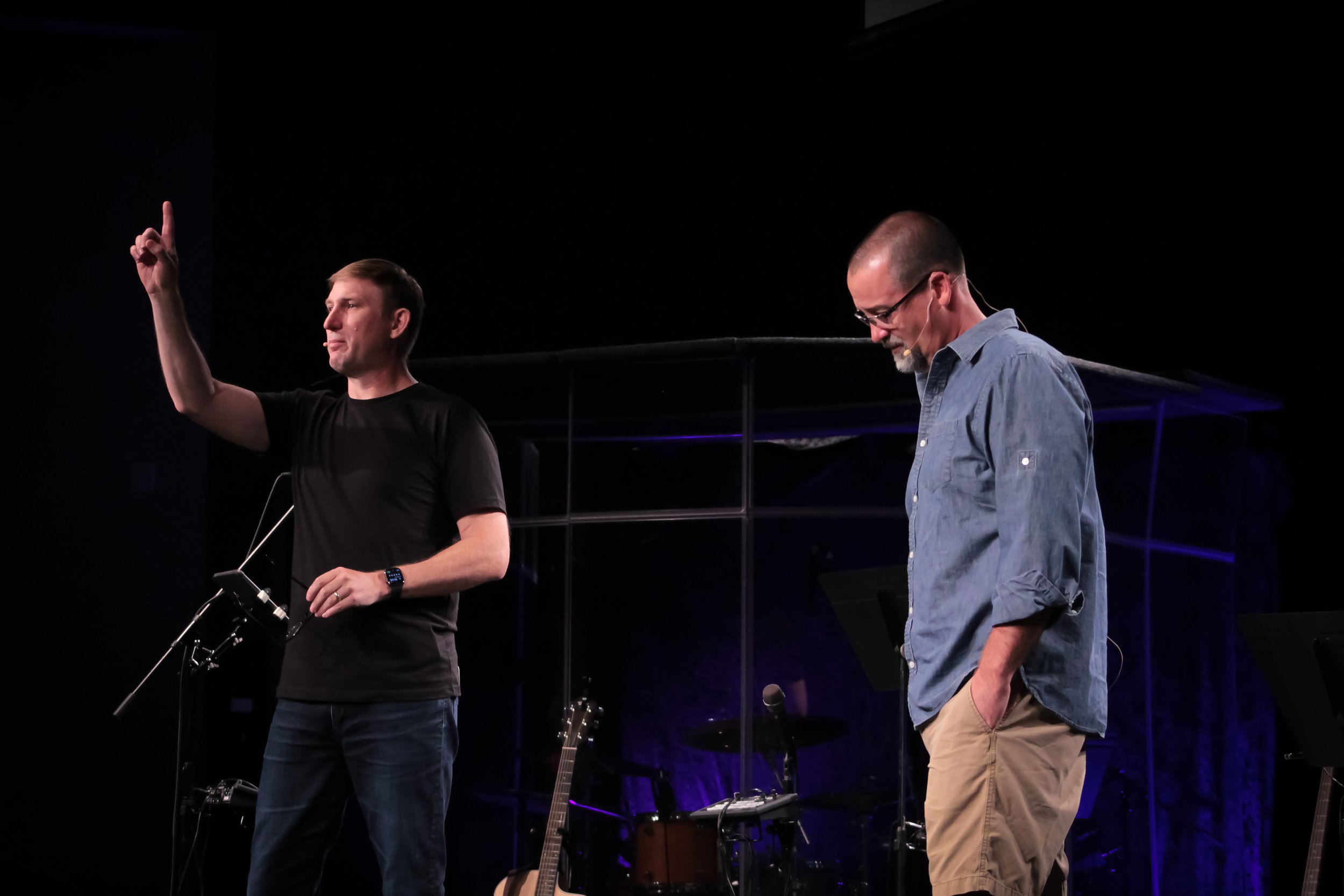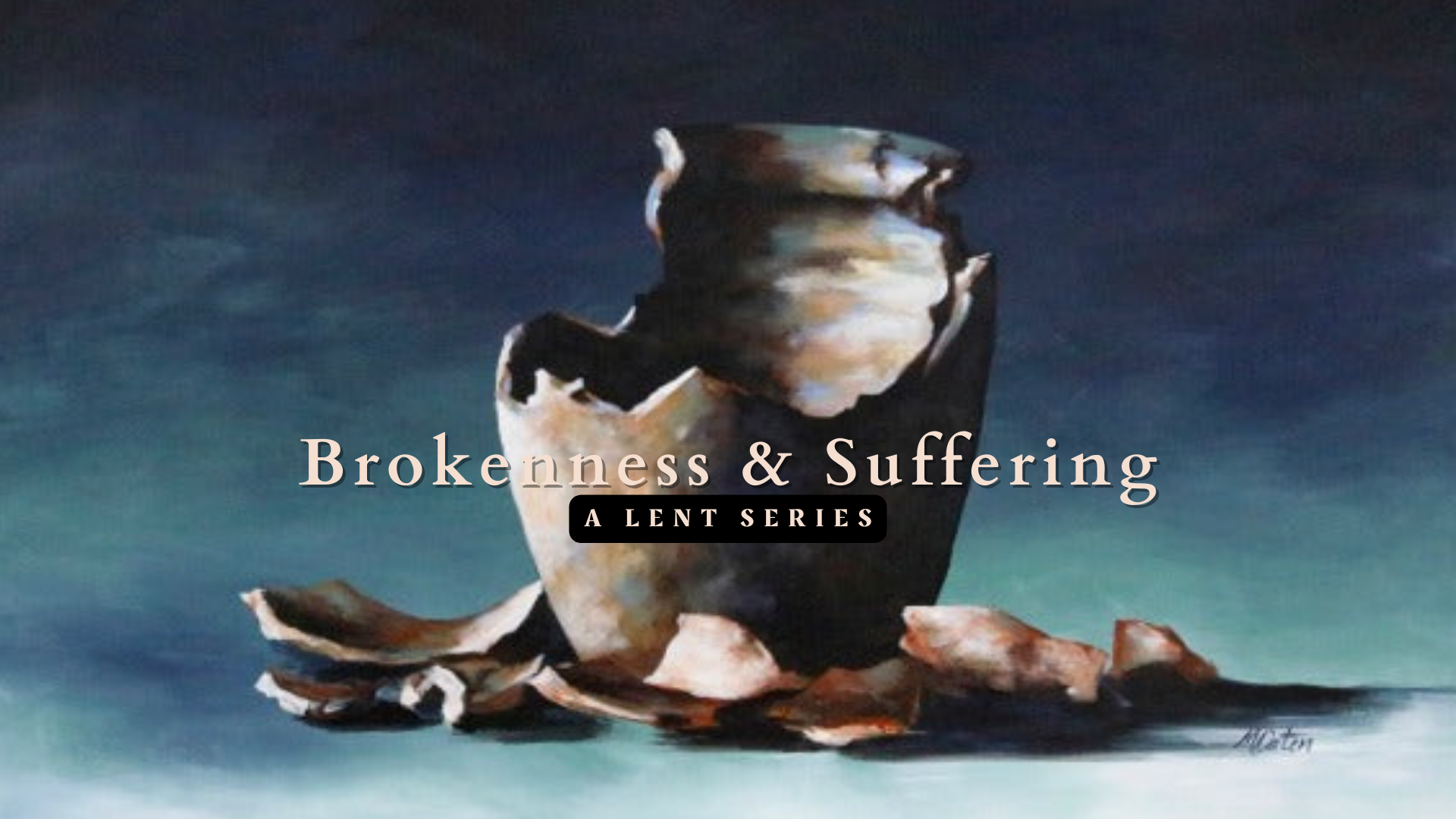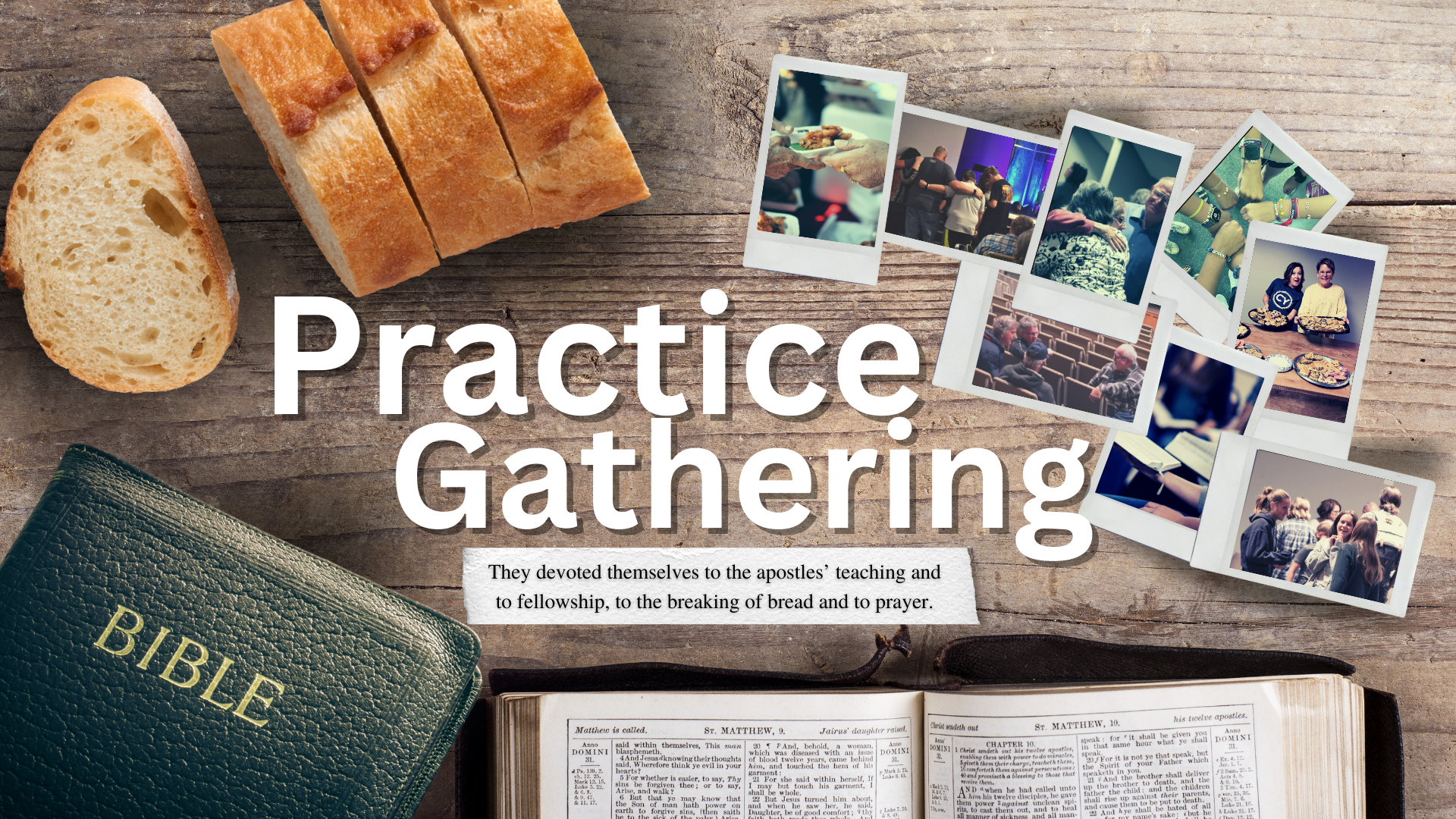
Recent
Sermons
Kingdom Hospitality: The Good Samaritan
Pastor Andrew dives into the Kingdom Hospitality series. We learn from the Lord of Hosts, Jesus, as teaches the parable of the Good Samaritan from Luke 10:25-37
Sermon begins at about 31 Minutes
Audio:
You can listen to the sermon below, or you can subscribe to our Celebrators Podcast wherever you listen.
Things To Remember:
This week we learn about receiving and giving hospitality from Jesus (the LORD of hosts) through the story of the Good Samaritan (Luke 10:25-37).
There are two things that help us better understand the points Jesus was making with this story.
First, the story is framed by a conversation Jesus has with an expert in the law. Two times the lawyer as Jesus a question. Each time responds to the question with a question and then gives his answer after the lawyer answers.
Lawyer Q1: “...what must I do to inherit eternal life?”
Jesus Q2: “What is written in the law? How do you read it?”
Lawyer A2: “Love the Lord your God and your neighbor”
Jesus A1: “Do this and you will live”
Lawyer Q3: “And who is my neighbor?”
Jesus Q4: “Which of the three was a neighbor?”
Lawyer A4: “The one who had mercy on him.”
Jesus A3: “Go and do likewise”
Kingdom Hospitality: You become a neighbor to others
The lawyers question is about what qualities in other determine who he has to love as a neighbor. Jesus' response through the use of the Good Samaritan story is that he should focus on the qualities/actions of himself to become a neighbor to others.
Second, there is a pattern in the story of seven scenes that compares and contrasts the characters in the story and provides the main point through the climax in the middle.
1. (Robbers) Injure/Steal Money
2. (Priest) Sees & does nothing
3. (Levite) Sees & does nothing
4. (Samaritan) Sees & takes pity
5. (Samaritan) Treats Wounds
6. (Samaritan) Transports
7. (Samaritan) Cares/Gives Money
Kingdom Hospitality: Does Something
The contrasts show that
1) A Samaritan (the outsider who the lawyer would never consider a neighbor), becomes a neighbor through loving actions
2) Becoming a neighbor occurs through seeing and doing something out of compassion.
Reflections Questions:
When is the last time you have done something for a neighbor?
When is the last time you have become a neighbor to someone?
Scripture References:
Other Sermon Notes and References:
Many of these insights were gained through the book Jesus through Middle Eastern Eyes by Kenneth Bailey
Kingdom Hospitality: The Banquet
Pastor Andrew dives into the Kingdom Hospitality series. We learn from the Lord of Hosts, Jesus, as teaches the parable of the banquet in Luke 14.
Sermon begins at about 50 Minutes
Audio:
You can listen to the sermon below, or you can subscribe to our Celebrators Podcast wherever you listen.
Things To Remember:
Kingdom Hospitality in review - some things we have learned from the LORD of hosts about giving and receiving hospitality.
Kingdom Hospitality: Jesus receives hospitality
Kingdom Hospitality: Jesus receives outsiders
Kingdom Hospitality: focus on listening not anxiety
Kingdom Hospitality: focus on loving not analyzing
Kingdom Hospitality: welcomes people even when inconvenients (speaks to people)
Kingdom Hospitality: gives thanks for what we have to offer
Kingdom Hospitality: asks God to bless what we have to offer
Kingdom Hospitality: intentionally and directly, gently & humbly enters other people’s stories
Kingdom Hospitality: isn’t just for people we are comfortable with
In the midst of a conversation about who will share in the messianic banquet in the coming age Jesus tells a story (Luke 14:16-23).
The host of the banquet prepares everything and says to the many who are invited "Come for everything is now ready." (Luke 14:16-17)
In the same we are invited into God's kingdom or in another way of life (filled with God) and it has all been paid for by Jesus.
Kingdom Hospitality: costs us nothing
But in the story those invited make excuses based on possessions, work, & relationships (Luke 14:18-20).
In the same way, it is easy for these things to take priority over God and prevent us from receiving the invitation into the life God offers us.
The host extends the invitation to many outsiders and the story ends with the listener being invited to consider whether they are accepting the invitation of the life God offers (Luke 14:24).
Jesus goes on to say that to be his disciple we must give him top priority and not let other things or relationships compete (Luke 14:25-34)
Kingdom Hospitality: costs us everything
We are invited to receive the life God offers. The question is do we want it? Will we prioritize God in a way to receive what he offers.
Scripture References:
Other Sermon Notes and References:
Kingdom Hospitality: W.A.I.T. : What Am I Thinking?
Pastoral Care Pastor Judd Nelson teaches in the Kingdom Hospitality series. We learn from the Lord of Hosts, Jesus, as He teaches about the banquet in Luke 14. During this message, Judd invites the congregation to write “WAIT” on their hand, an acronym for “What Am I Thinking”. This is to encourage us to think about how we think about others, and who we are inviting into our hospitality.
Sermon begins at about 22 Minutes
Audio:
You can listen to the sermon below, or you can subscribe to our Celebrators Podcast wherever you listen.
Things To Remember:
Scripture References:
Other Sermon Notes and References:
Kingdom Hospitality: Woman At The Well
Director of Hospitality Ali Cranmer teaches in the Kingdom Hospitality series. We learn from the Lord of Hosts, Jesus, as He interacts with the woman at the well. During this message, Ali uses a video from The Chosen to help teach the message. Scroll down to watch that video (it is muted during the sermon broadcast).
Sermon begins at about 30 Minutes
Audio:
You can listen to the sermon below, or you can subscribe to our Celebrators Podcast wherever you listen.
Things To Remember:
Scripture References:
Other Sermon Notes and References:
To watch The Chosen on your phone or smart tv for free, visit this link for info on how to download.
Ali uses this video from The Chosen in her sermon.
Kingdom Hospitality: Jesus Feeds the 5000
Pastor Andrew dives into the Kingdom Hospitality series. We learn from the Lord of Hosts, Jesus, as He feeds the 5000.
Sermon begins at about 23 Minutes
Audio:
You can listen to the sermon below, or you can subscribe to our Celebrators Podcast wherever you listen.
Things To Remember:
Scripture References:
Other Sermon Notes and References:
Kingdom Hospitality: Focus on Loving Not Analyzing
Pastor Andrew dives into the Kingdom Hospitality series. This week our focus is on loving, not analyzing. We learn from the Lord of Hosts, Jesus, as He encounters Mary and Martha, and as he interacts with a Pharisee named Simon as a woman washes His feet with her tears.
Sermon begins at about 30 Minutes
Audio:
You can listen to the sermon below, or you can subscribe to our Celebrators Podcast wherever you listen.
Things To Remember:
Romans 12:9 &13 "Be Devoted to One Another" & "Practice Hospitality"
Giving and Receiving Hospitality in Jesus’ Name: Learning from the LORD of HOSTS
Luke 10:38-42
Jesus receives hospitality
Jesus receives outsiders (those often overlooked or excluded)
Kingdom Hospitality: focus on listening not anxiety
Luke 7:36-50
Jesus receives hospitality
Jesus receives outsiders (those often overlooked or excluded)
Jesus receives 'insiders' (even when they don't see clearly)
Kingdom Hospitality: focus on loving not analyzing
Let's Practice Hospitality with another so that we show it better to others
Kingdom Hospitality: focus on Jesus
Scripture References:
Other Sermon Notes and References:
Easter Sunday 2023
Pastor Andrew preaches an Easter Sunday message over John 21:1-22, challenging us to think about Jesus’ question to Peter, “Do you love me?”. This series begins a new sermon series, “Kingdom Hospitality”, which we will dive into fully next week.
Sermon begins at about 22 Minutes
Audio:
You can listen to the sermon below, or you can subscribe to our Celebrators Podcast wherever you listen.
Things To Remember:
For notes on this Sunday’s message, please email jennie@celebratechurch.com
Scripture References:
Other Sermon Notes and References:
Brokenness And Suffering: Innocence Protected
Pastor Andrew continues the sermon series titled “Brokenness and Suffering”. In this series, Andrew focuses on how Jesus suffered for us. He then addresses an aspect of human sexuality, and the suffering and brokenness that comes with sexual immorality. See the notes below for more.
Sermon begins at about 18 minutes
Audio:
You can listen to the sermon below, or you can subscribe to our Celebrators Podcast wherever you listen.
Things To Remember:
For notes on this Sunday’s message, please email jennie@celebratechurch.com
Scripture References:
Other Sermon Notes and References:
Brokenness And Suffering: Man and Woman
Pastor Andrew continues the sermon series titled “Brokenness and Suffering”. In this series, Andrew focuses on how Jesus suffered for us. He then addresses an aspect of human sexuality, and the suffering and brokenness that comes with sexual immorality. See the notes below for more.
Sermon begins at about 26 minutes
Audio:
You can listen to the sermon below, or you can subscribe to our Celebrators Podcast wherever you listen.
Things To Remember:
For notes on this Sunday’s message, please email jennie@celebratechurch.com
Scripture References:
Other Sermon Notes and References:
Brokenness And Suffering: Lifelong Covenant
Pastor Andrew continues the sermon series titled “Brokenness and Suffering”. In this series, Andrew focuses on how Jesus suffered for us. He then addresses an aspect of human sexuality, and the suffering and brokenness that comes with sexual immorality. See the notes below for more.
Sermon begins at about 25 minutes
Audio:
You can listen to the sermon below, or you can subscribe to our Celebrators Podcast wherever you listen.
Things To Remember:
Jesus suffered by being betrayed by those closest to him (Judas, Peter, the other disciples).
In Matthew 19:4-6 we Jesus referencing Genesis 1 & 2 and reinforcing that marriage was two persons becoming 'one flesh' which is biblically understood as a lifelong covenant.
Biblical Ideal for Human Sexuality: Lifelong Covenant
Challenge #1: Divorce
“Divorcing a spouse in a legal way just because you’re not happy in your marriage or because you want to marry someone else is following a law but failing to love.” (Bill Gaultiere paraphrase of Matthew 5:32 in Jesus Greatest Teaching)
Jesus discourages a focus on rationale for divorce and encourages God's ideal of marriage being a lifelong covenant.
Biblically being 'in love' is not the requirement for being married, rather the covenant relationship is a place to learn to love.
God hates divorce, but he does not hate divorced people. He hates the pain divorce causes (not just for the two going through divorce but maybe especially for the children involved).
Hard heartedness in marriage can lead to the broken heartedness of divorce.
Jesus' words should not be used to trap people into staying married especially in the case of abuse or sexual unfaithfulness (or when one person is living as if divorced).
Sometimes divorce is the best option forward and we should walk compassionately with those who are divorced.
Challenge #2: Cohabitation
After hearing how seriously Jesus took divorce the disciples responded, "It is better not to marry" (Matthew 19:10).
After experiencing so much divorce many in our generation also says "It is better not to marry". But unlike the disciples they are still seeking the "one flesh" experience of living together and/or sleeping together just without (or before) making the lifelong covenant.
Often people think of living together as a natural step to take before marriage. However:
Those who cohabitate before marriage are less likely to marry.
Those who cohabitate before marriage and do get married are more likely to get divorced.
Those who cohabitate before marriage often develop long term trust issues.
Reasons for living together: Financial, Convenience, Not ready for marriage yet, Trouble finding a venue for wedding
We are encouraged to prioritize trusting Jesus' direction of joining together as one flesh through the covenant of marriage over the conveniences or false securities of cohabitating first.
Conclusion:
Jesus' response to continue calling us "friend" even as we betray him with choosing our own way over his way. (Matthew 26:10)
Our response is to have a conversation with Jesus about areas in life in which we feel stuck or ashamed asking him to help us see things the way he does.
Scripture References:
Matthew 19:4-6 Genesis 1 & 2 Matthew 5:32 Matthew 19:10 Matthew 26:10
Other Sermon Notes and References:
Brokenness And Suffering: Male & Female
Pastor Andrew continues the sermon series titled “Brokenness and Suffering”. In this series, Andrew focuses on how Jesus suffered for us. He then addresses an aspect of human sexuality, and the suffering and brokenness that comes with sexual immorality. See the notes below for more.
Audio:
You can listen to the sermon below, or you can subscribe to our Celebrators Podcast wherever you listen.
Things To Remember:
Jesus suffered by being misunderstood and misrepresented when he was on trial before the Sanhedrin.
In Matthew 19:4 Jesus applies to Genesis 1 to say
we are created
we are created in God's image
we are created male and female
Biblical Ideal for Human Sexuality: Male and female
God created us as male and female; man and women (Genesis 2:7, 21-23)
Challenge: Trans* & Gender confusion
When talking with people about these issues we should be quick to listen, slow to speak and slow to become angry (James 1:19-20)
We should seek to understand others we will likely misunderstand and misrepresent.
We want to be a safe place for people to process.
Biological sex: male or female
Two options based on (reproductive) body parts, chromosomes, type of hormones released
Gender: is the psychological, social or cultural aspects of being male or female
Trans*
An umbrella term for when your gender identity (the internal sense of self one has of being male/female/neither/both) doesn't match their biological sex.
Scripture teaches that God created us male or female and that we should affirm the gender to which he created us:
Genesis 5:1, Deuteronomy 22:5, 1 Corinthians 2:1-16
The Bible does not give us prescriptions for gender role (what likes, affinities, etc).
Most of what we associate with masculine or feminine are based on cultural gender stereotypes which do not equate to biblical directives.
Where do we get our identity:
From others: what they say, approve us, exect, affirm
From ourselves: what we feel even though we are broken people
From our Creator: in whose image we are made and who loves us
Challenge: Self hatred and/or gender hatred
We can hate ourselves (and subconsciously our genders) when we don't feel like we measure up as a man or woman.
Misogyny is the hatred of women/feminine
Misandry is the hatred of men/masculine
To be a true man or true woman is to be who God created you to be and we live into that by listening to and obeying Jesus.
Conclusion:
Jesus' response when he was being misunderstood, accused, slandered, mocked, and bullied was to say that he was God's Son because that is who God said He was.
Our response is to get our identity from our Creator who made us (Psalm 139:13-16) and chooses us and loves us.
Scripture References:
Matthew 19:4 Genesis 2:7, 21-23 Genesis 5:1, Deuteronomy 22:5, 1 Corinthians 2:1-16 Psalm 139:13-16
Other Sermon Notes and References:
Brokenness And Suffering: Singleness
Pastor Andrew continues the sermon series titled “Brokenness and Suffering”. In this series, Andrew focuses on how Jesus suffered for us. He then addresses an aspect of human sexuality, and the suffering and brokenness that comes with sexual immorality. This week, we are reminded that Jesus suffered by being abandoned. See the notes below for more.
Sermon begins at about 19 minutes.
Audio:
You can listen to the sermon below, or you can subscribe to our Celebrators Podcast wherever you listen.
Things To Remember:
Jesus suffered by being abandoned by his disciples/friends and then by God the Father when he was on the cross taking the punishment for our sins.
In Matthew 19:4-6 Jesus appealed to Genesis 1 & 2, to explain and confirm God's ideal for marriage and sexuality.
In Matthew 19:11-12 Jesus explains that not everyone is called to be married and offers an alternative.
Biblical Ideal for Human Sexuality: Celibate singleness
Those who are unmarried should commit to sexual abstinence.
Remaining single is promoted in the Bible and is not an inferior option to marriage.
Challenge: Romantic idolatry
The Bible says that God is love [agape: self-giving love that wills the good of the other]
Our world often promotes that love [eros: romantic, passionate, sexual love] is god.
1 Corinthians 7:25-40 talks about prioritizing our devotion to God. A case is made that it can be easier to be devoted to God when we are single.
Challenge: Isolation
Singleness can be lonely and isolating.
It should be noted that marriage, too, can be lonely or isolating. Marriage or romantic relationships are not the automatic fix.
Prioritizing God and finding healthy intimate friendships are encouraged for those who are single and married alike.
Mark 10:28-30 promises that those who give up relationships for the sake of the gospel will receive relationships in the spiritual family of God. We are to be the family of God to one another.
Conclusion:
Our response is to prioritize God above all relationships and to live as the family of God regardless of our status as single or married.
Jesus' response to us is that he was willing to be abandoned for our sake to make a way and as a guarantee that he will never leave us or forsake us. (Hebrews 13:5, Matthew 28:20)
Scripture References:
Matthew 19:4-6 Genesis 1 & 2 Matthew 19:11-12 Mark 10:28-30 Hebrews 13:5 Matthew 28:20
Other Sermon Notes and References:
Brokenness And Suffering: Two Became One
Pastor Andrew begins a new sermon series titled “Brokenness and Suffering”. In this series, Andrew focuses on how Jesus suffered for us. He then addresses an aspect of human sexuality, and the suffering and brokenness that comes with sexual immorality. This week, we are reminded that Jesus suffered by being tempted with an easier way, but still chose day by day to journey to the cross for us. See the notes below for more.
Sermon begins at about 25 minutes.
Audio:
You can listen to the sermon below, or you can subscribe to our Celebrators Podcast wherever you listen.
Things To Remember:
Jesus suffered by being tempted with an easier way, but still chose day by day to journey to the cross for us.
In Matthew 19:4-6 Jesus appealed to Genesis 1 & 2, in response to understanding God's ideal for marriage and sexuality.
Biblical Ideal for Human Sexuality: Two become One
This means two people share a lifelong commitment of marriage.
This means the becoming one flesh act of sex is intended to take place within that lifelong commitment of marriage.
Challenge: Lust & Sexual Immorality
Sexual Immorality in the Bible is any sexual activity outside of marriage.
Jesus indicates in Matthew 5:27-30 that sexual sin begin in our heart, that we should resist lust because it is a sin against other people and dangerous for our souls.
Some New Testament passages relevant to sexual immorality: Romans 1:18-25,32; 1 Corinthians 5:1-13, 6:12-20; Galatians 5:13-25; Ephesians 4:17-24, 5:3-7; Colossians 3:5-7; 1 Thessalonians 4:3-8; Hebrews 13:4, 2 Peter 2:13-14, 17-22; Jude 1:3-4, 7; Revelation 2:20-23
Conclusion:
All of us are broken sexually and in this together.
Jesus responds to our brokenness by being willing to suffer for us and avoid taking the easier way.
Our response should be to come to Jesus as we acknowledge his standards and our brokenness.
Scripture References:
Romans 1:18-25,32; 1 Corinthians 5:1-13, 6:12-20; Galatians 5:13-25; Ephesians 4:17-24, 5:3-7; Colossians 3:5-7; 1 Thessalonians 4:3-8; Hebrews 13:4, 2 Peter 2:13-14, 17-22; Jude 1:3-4, 7; Revelation 2:20-23, Matthew 5:27-30, Matthew 19:4-6 Genesis 1 & 2
Other Sermon Notes and References:
Practice Gathering: Prayer
Pastor Andrew concludes our sermon series called, “Practice Gathering”. This series focused on Acts 2:42: “They devoted themselves to the apostles’ teaching and to fellowship, to the breaking of bread and to prayer.” This week focused on prayer. Andrew encouraged the congregation to put the things they’ve learned over the last several weeks into practice. The congregation joined together in prayer during the service.
Sermon begins at about 20 minutes.
Audio:
You can listen to the sermon below, or you can subscribe to our Celebrators Podcast wherever you listen.
Practice Gathering: Prayer
Matt Van Sant continues our sermon series called, “Practice Gathering”. This series focuses on Acts 2:42: “They devoted themselves to the apostles’ teaching and to fellowship, to the breaking of bread and to prayer.” This week focuses on prayer. Matt encourages us to focus on Jesus as the center of our lives and our gathering worship.
Sermon begins at about 30 minutes.
Audio:
You can listen to the sermon below, or you can subscribe to our Celebrators Podcast wherever you listen.
Practice Gathering: Breaking of Bread (Communion)
Pastor Judd Nelson continues a new sermon series called, “Practice Gathering”. This series focuses on Acts 2:42: “They devoted themselves to the apostles’ teaching and to fellowship, to the breaking of bread and to prayer.” This week focuses on how the early Christians in Acts devoted themselves to gathering together for the purpose of sharing meals with one another. Judd focuses on what it means to remember what God has done as we gather together and share in communion.
Sermon begins at about 17 minutes.
Audio:
You can listen to the sermon below, or you can subscribe to our Celebrators Podcast wherever you listen.
Scripture References:
Things To Remember:
Other Sermon Notes and References:
Practice Gathering: Breaking of Bread (Sharing Meals)
Pastor Andrew Schmidt continues a new sermon series called, “Practice Gathering”. This series focuses on Acts 2:42: “They devoted themselves to the apostles’ teaching and to fellowship, to the breaking of bread and to prayer.” This week focuses on how the early Christians in Acts devoted themselves to gathering together for the purpose of sharing meals with one another. Andrew focuses on what it means to have have “food in the name of Jesus”.
Sermon begins at about 22 minutes.
Audio:
You can listen to the sermon below, or you can subscribe to our Celebrators Podcast wherever you listen.
Scripture References:
Luke 5:27-39, 7:36-50, 10:38-42, 11:37-52, 14:1-24, 19:1-27, 22:7-38, 24:28-49
Things To Remember:
When the church was birthed in Acts followers of Jesus met together every day to keep their relationship with God vibrant.
They devoted themselves to the breaking of bread (Acts 2:42) and this included eating together with glad and sincere hearts (Acts 2:46).
There are many ways that we can do "food in the Name of Jesus".
We can talk about God and his ways over food, just like Jesus did (see Luke 5:27-39, 7:36-50, 10:38-42, 11:37-52, 14:1-24, 19:1-27, 22:7-38, 24:28-49).
We can share life with people over food and help cultivate a sense of family with our brothers and sisters in Christ.
We can share food with those who need it or as an act of love to those who are hurting.
We can pray before or after meals including in ways that would specifically bless those with us at the table.
We can do what the disciples did in the feeding of the 5000 story: offer what we have to Jesus, ask Him to bless it, then watch him multiply the blessing through us as we share it with others.
Other Sermon Notes and References:
Practice Gathering: Fellowship (Sharing Resources)
Pastor Andrew Schmidt continues a new sermon series called, “Practice Gathering”. This series focuses on Acts 2:42: “They devoted themselves to the apostles’ teaching and to fellowship, to the breaking of bread and to prayer.” This week focuses on how the early Christians in Acts devoted themselves to gathering together for the purpose of sharing resources with one another. (See notes below for more)
Sermon begins at about 27 minutes.
Audio:
You can listen to the sermon below, or you can subscribe to our Celebrators Podcast wherever you listen.
Scripture References:
Things To Remember:
When the church was birthed in Acts followers of Jesus met together every day to keep their relationship with God vibrant.
They devoted themselves to [the] fellowship. (Acts 2:42)
The Greek word koinonia can be both a noun and a verb so they committed themselves to fellowshiping (actively participating and sharing) in a fellowship (community bound by the common purpose of following Jesus).
Acts 2:44 shows that this including sharing financial/material resources.
Of the approximately 30 times a form of koina or koinonia is used in the New Testament at least 11 times it is connected to this kind of sharing financial resources (Acts 2:44, Acts 4:32, Romans 12:13, Romans 15:26, 2 Corinthians 8:4, 2 Corinthians 9:13, Galatians 6:6, Philippians 4:14 & 4:15, 1 Timothy 6:18, Hebrews 13:16).
The Bible promotes the contributing of financial resources to the ministry for the Lord in the Old and New Testament in principles that include:
Tithing: giving 10% of your income to God's kingdom work
Firstfruits: setting aside a portion of your income (perhaps your tithe) before spending
Offerings: additional giving beyond the tithe
Giving to the poor: Sharing financial with those in need
We are encouraged to excel in the grace of giving and operate in the same generous spirit of Jesus. (2 Corinthians 8:7-9)
God promises to bless our generosity by meeting our needs and in order to allow us to continue to be generous. (2 Corinthians 9:8-11)
Other Sermon Notes and References:
Practice Gathering: Fellowship (Sharing Life)
Pastor Andrew Schmidt continues a new sermon series called, “Practice Gathering”. This series focuses on Acts 2:42: “They devoted themselves to the apostles’ teaching and to fellowship, to the breaking of bread and to prayer.” This week focuses on how the early Christians in Acts devoted themselves to gathering together for the purpose of sharing life with one another. (See notes below for more)
Sermon begins at about 29 minutes.
Audio:
You can listen to the sermon below, or you can subscribe to our Celebrators Podcast wherever you listen.
Scripture References:
Things To Remember:
When the church was birthed in Acts followers of Jesus met together every day to keep their relationship with God vibrant. Do you regularly set aside times to meet with other believers and intentionally grow in your faith?
When we have a relationship (are in fellowship) with Jesus we become part of his Body and are called to have relationships (be in fellowship with) other Jesus followers.
The early devoted themselves to [the] fellowship. The Greek word for fellowship is koinonia.
As a noun it means association, fellowship, community of people living life together with a common purpose (following Jesus).
As a verb it means sharing, participating, contributing in a community of people.
We are to be devoted to a fellowship or fellowships (koinonia) of committed Jesus followers. Are you?
We are to be devoted to fellowshiping with a fellowship of committed Jesus followers. Are you?
Other Sermon Notes and References:
“The Body of Christ is nothing other than a fellowship of persons. It is the ‘fellowship of Jesus Christ’ [1 Cor 1:9] or ‘fellowship of the Holy Spirit’ [2 Cor 13:14, Phil. 2:1] where fellowship or koinonia signifies a common participation, a togetherness, a community life.” -Emil Brunner
“The faithful are bound to each other through their common sharing in Christ and in the Holy Spirit…” -Emil Brunner
Practice Gathering: The Scriptures
Pastor Andrew Schmidt continues a new sermon series called, “Practice Gathering”. This series focuses on Acts 2:42: “They devoted themselves to the apostles’ teaching and to fellowship, to the breaking of bread and to prayer.” This week focuses on how the early Christians in Acts devoted themselves to gathering together and listening to the Apostles teaching, with emphasis on The Scriptures.
Sermon begins at about 49 minutes (this Sunday we welcomed new elders, so the sermon started later in the service than usual).
Audio:
You can listen to the sermon below, or you can subscribe to our Celebrators Podcast wherever you listen.
Scripture References:
Things To Remember:
When the church was birthed in Acts followers of Jesus met together every day to keep their relationship with God vibrant. How often do you think you should meet with other believers with the intentional purpose of growing in your faith?
Followers devoted themselves to the Apostle's teaching which includes:
Listening to teaching from those who know Jesus well and can help us learn how to receive God's love and love others.
Learning from the Scriptures of the Bible which point us to Jesus
Studying the Scriptures together with others
In the coming weeks or months find a way to gather with others around the Scriptures for a season.



























